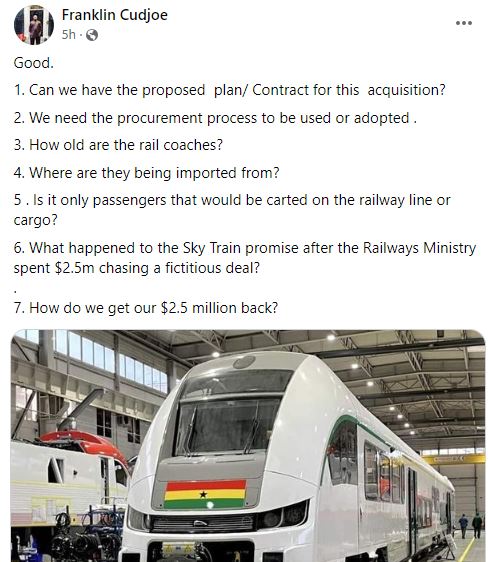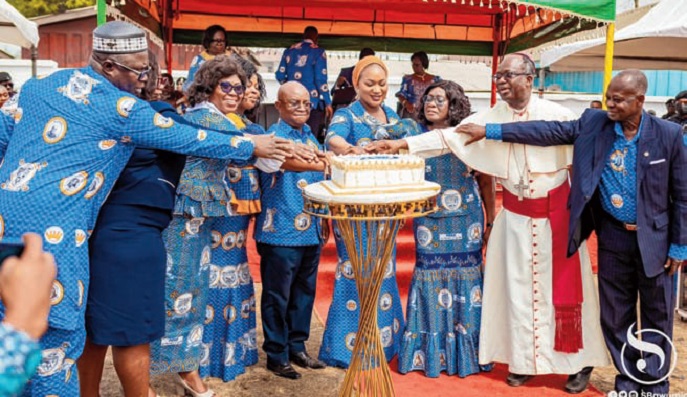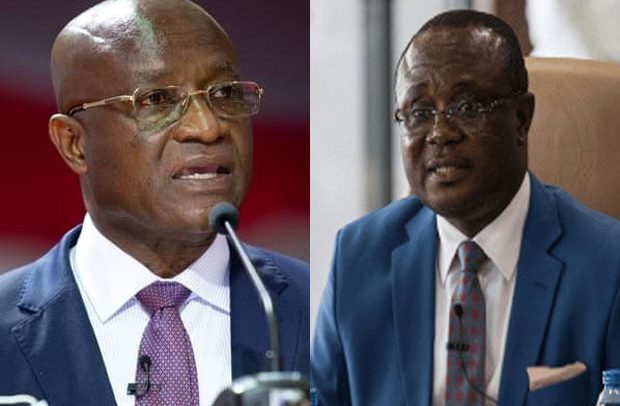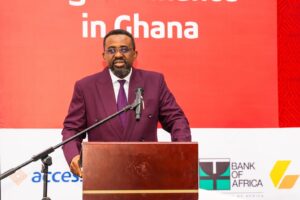
The Parliament of Ghana has secured a US$1.6 million facility sourced from the World Bank and the UK’s Foreign, Commonwealth and Development Office (UK FCDO) to enhance the capacities of lawmakers.
The project aims to enable MPs to deliver efficiently and effectively on their oversight responsibilities, particularly in finance and economic governance.
Launching the facility at the Justice D.F. Annan Auditorium in Parliament, Speaker Rt. Hon. Alban Sumana Kingsford Bagbin emphasised the importance of building Parliament’s capacity to examine economic policies, scrutinise budgets and ensure accountability mechanisms.
He noted that despite Parliament’s growth, it faces complex and uncertain global and national economic challenges.
The Speaker emphasised the need for a deep understanding of public finance management, debt sustainability and economic supervision. He mentioned that Parliament had revised its Standing Orders in 2024 to establish 12 new committees and offices to improve accountability and transparency in economic governance.
Despite this landmark achievement, Speaker Bagbin said a lot more has to be done to ensure effective and efficient oversight responsibilities of the legislature.
“Parliament must, as a matter of necessity, follow up on this transformative review to build its capacity to examine economic policies, scrutinise budgets and ensure the proper functioning of accountability mechanisms to ensure prudent utilisation of public funds”, he noted.
The Capacity Building project identifies a number of economic and governance committees such as Economy and Development, Ways and Means, Budget, Public Accounts and Public Administration and State Interest for support.
Part of the US$1.6 million is also to be extended to the Citizens Bureau, the newly created office for Parliamentary Analysis and the Fiscal Council of the State to train its members.
Besides building on the capacities of Committee Members who have oversight responsibilities of finance and economic governance, as well as other offices of the legislature, the initiative also seeks to put in place systems of change management to enable Parliament exercise its constitutional responsibilities, particularly, in relation to legislation, budgetary control and analysis of economic policies.
Majority Leader Mahama Ayariga emphasised that Parliament’s work goes beyond lawmaking and representation, covering core functions of resource allocation and oversight.
“This makes it imperative for Parliamentarians to be provided with the requisite skills and expertise to interrogate and interpret figures, analyse financial charts and graphs, and access the right tools and data to make informed decisions regarding budget statements and economic policy of government.
“More so, the acquisition of such knowledge helps parliamentarians to understand complex budgetary processes, evaluate the impact of fiscal policies, scrutinise public expenditure and advocate for equity in national development”, he explained.
He said through collaborations, Parliament could harness the power of technology, innovation and partnerships to ensure the promotion of good governance and accountability and, therefore, urged the lawmakers to commit themselves to the capacity building project with a deep sense of responsibility.
He stressed the importance of providing Parliamentarians with the requisite skills and expertise to analyze financial data, interpret budget statements, and make informed decisions.
Minority Leader Alexander Afenyo Markin noted that without a solid grasp of finance and economic governance, parliamentary procedures alone are insufficient.
He emphasised the need for greater analytical depth to examine sectoral issues, benchmarking and evaluation.
“Indeed, when parliamentarians are well equipped to analyse budget, the results speak for themselves. In Ghana’s own context of public debt reduction and fiscal reforms, such capacity is solely needed.
“For instance, analyst of our 2020 budget stressed that strict fiscal discipline must go hand in hand with strategic investment.
“They warned that only a combination of strong fiscal discipline, prudent debt management and vibrant domestic bond market can restore confidence and ensure efficient use of public funds. We will be better able to guide budget policy and hold the executive to account to it. If MPs understand the numbers and the policy context, our debate and decisions will have greater impact”, he noted.
Michelle Keane, Acting World Bank Division Director said the initiative will enable MPs to acquire the necessary skills and knowledge to evaluate allocations and uses of governance expenditures and revenues.
Keith McMahon, Charge d’affaires at the British High Commission, expressed the UK’s commitment to supporting Ghana’s prosperity through partnerships.
By Stephen Larbi
The post Parliament secures $1.6m facility to train MPs on finance and economic governance appeared first on The Ghanaian Chronicle.
Read Full Story
















Facebook
Twitter
Pinterest
Instagram
Google+
YouTube
LinkedIn
RSS